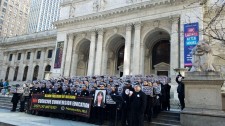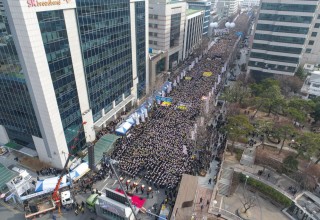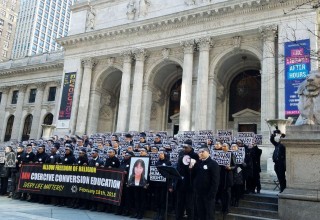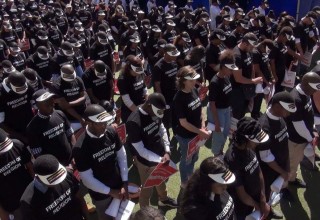South Korea: The Olympic Games Amid Large-Scale Human Rights Protests

NEW YORK, February 19, 2018 (Newswire.com) - The 2018 Winter Olympic Games in Pyeongchang, South Korea, is one reason why this country is making headlines. Known for its economic growth in the years following the Korean War, South Korea has since become a country producing cultural phenomena including K-Pop, dramas and social reform. While foreigners spectate the games, citizens hit the streets to protest recent human rights violations. According to a Cheon-ji News article released on 29 January, protests started about a month ago with over 140,000 participants from all across South Korea calling for justice for the hundreds of victims of Coercive Conversion Education.
On 30 December, 25-year-old woman Ms. Ji-in Goo was found dead at a lodging in Hwasun. The Hwasun Police Department confirmed an investigation is underway. The woman’s parents are being questioned about their involvement in the confinement and death of their daughter. During a call with Cheon-ji Newspaper, the police stated the autopsy showed they “cannot exclude the possibility of suffocation and a high possibility of cardiopulmonary arrest due to oxygen deprivation.” Koreans are now doing what they do best: protesting.
The South Korean people historically have held large-scale demonstrations demanding change. During The Great Workers’ Struggle in 1987, 1.2 million laborers fought for democratization and unionization.
From October to December 2016, hundreds of thousands of people gathered for candlelight vigils weekly to demand the impeachment of President Park Geun-hye.
In the last month, another wave of mass protests emerged. The people are petitioning for the protection of religious freedom protected by the Constitution of South Korea, Article 20.
Sunday, 28 January, Cheonji-News reported 120,000 people protested in Seoul to speak against Coercive Conversion Education. The purpose of the demonstrations is to petition for legal framework criminalizing religion-based violence.
According to reports from Human Rights Association for Forced Conversion (HRAFC), a Korean civil society NGO, Coercive Conversion Education was performed on more than 1,000 people by a small group of Korean pastors. Organizations such as the Association of Victims of Coercive Conversion Programs (AVCCP) have reached out to international human rights groups to spread awareness.
1 February, 2018, 1,000 people gathered in Pretoria, South Africa, to honor Ms. Ji-in Goo. More than 100 protesters from human rights organizations rallied yesterday 18 February in New York City.
Jennifer Jun
646-207-2504
Protectfreedomofreligion@gmail.com
Source: Cheonji-News NY


